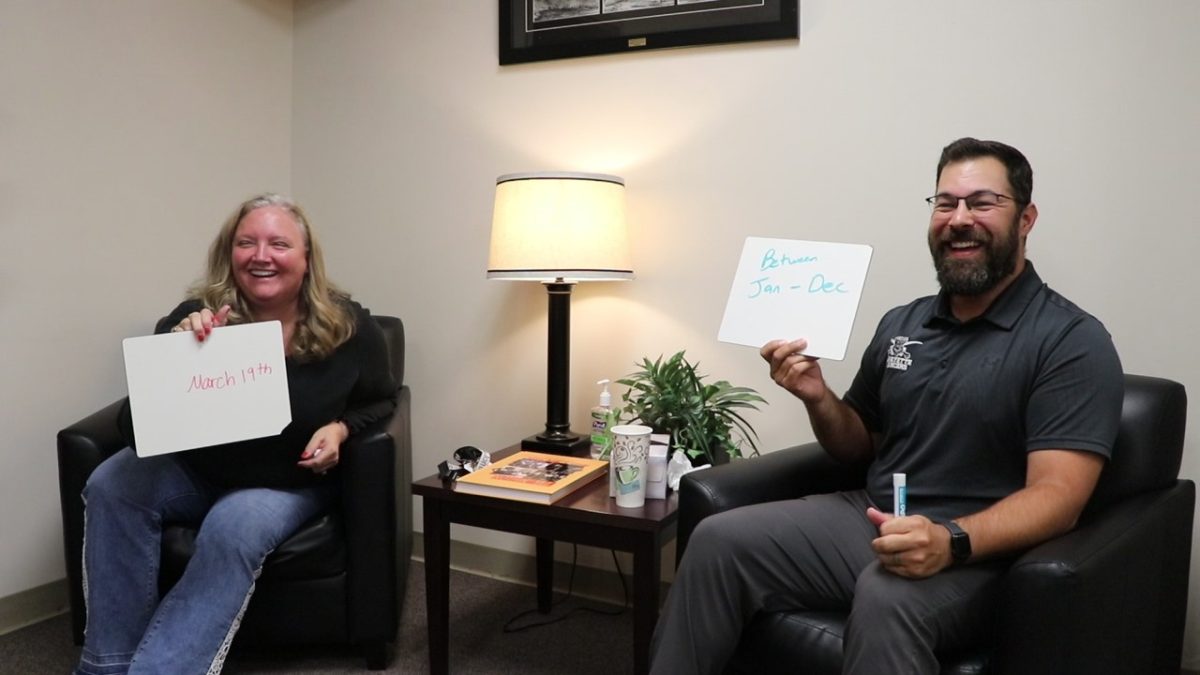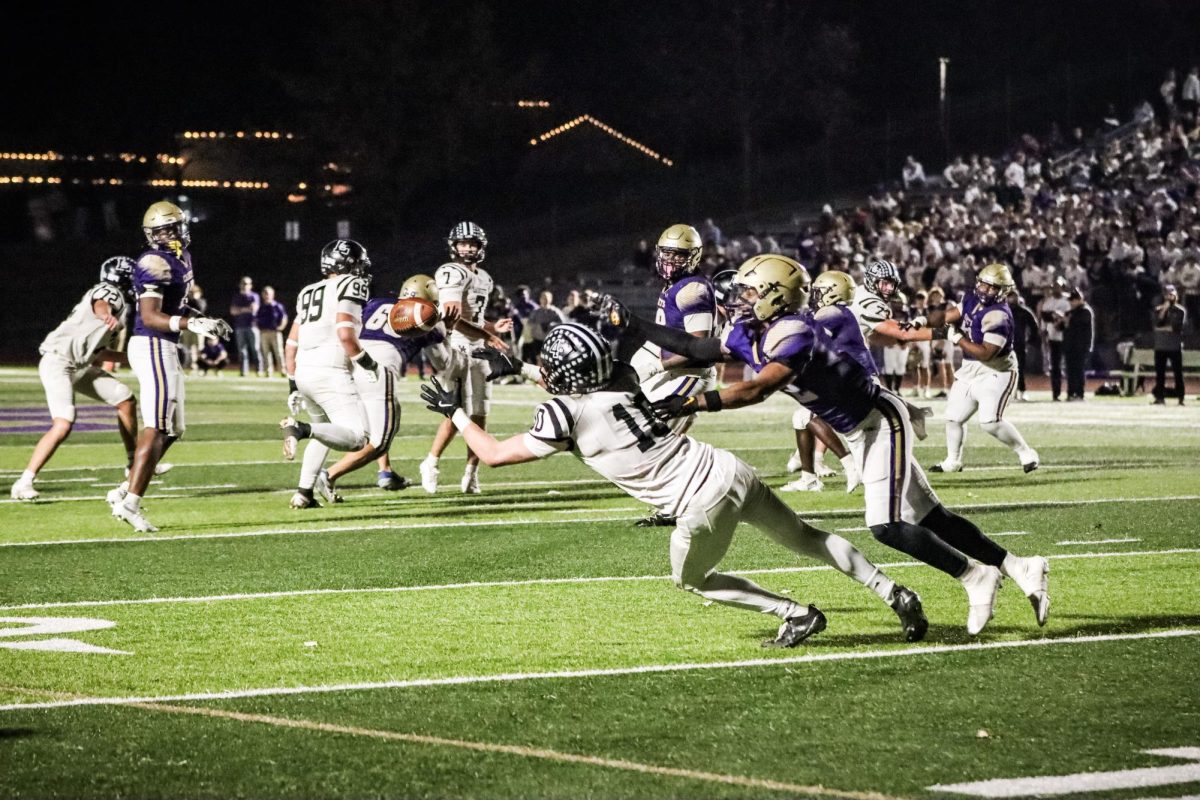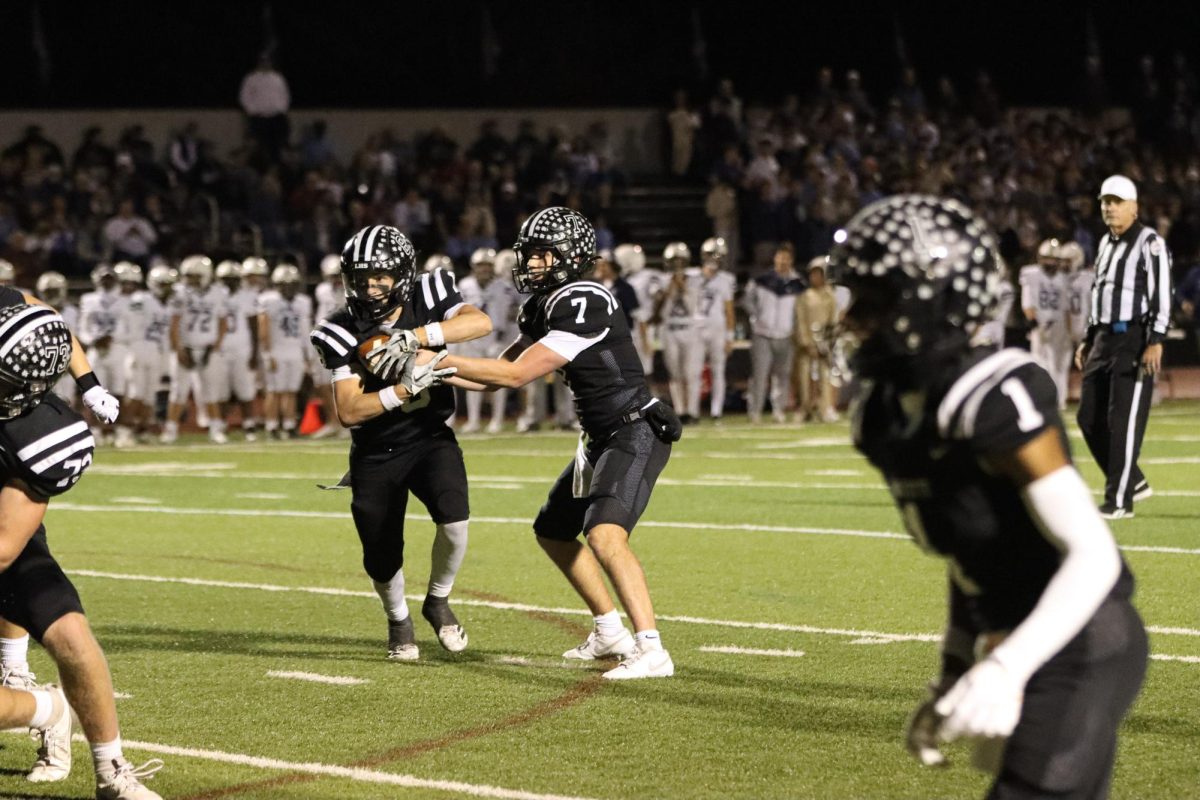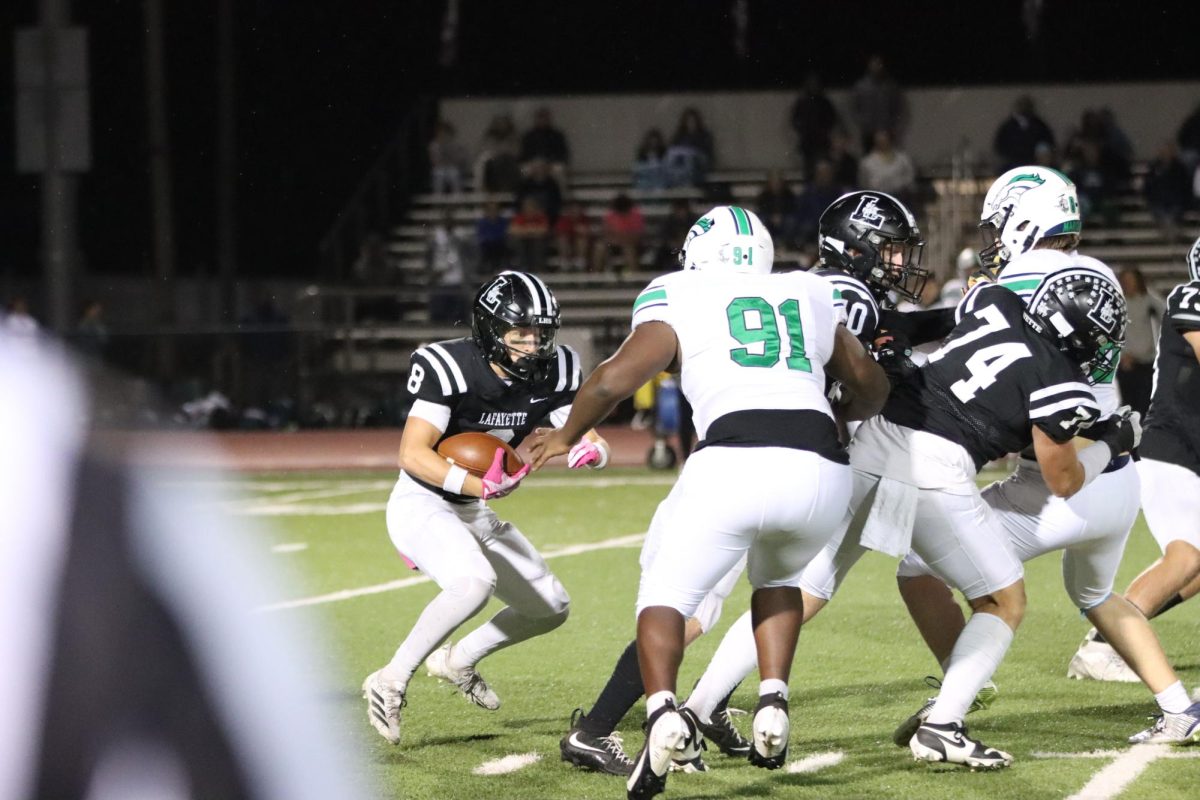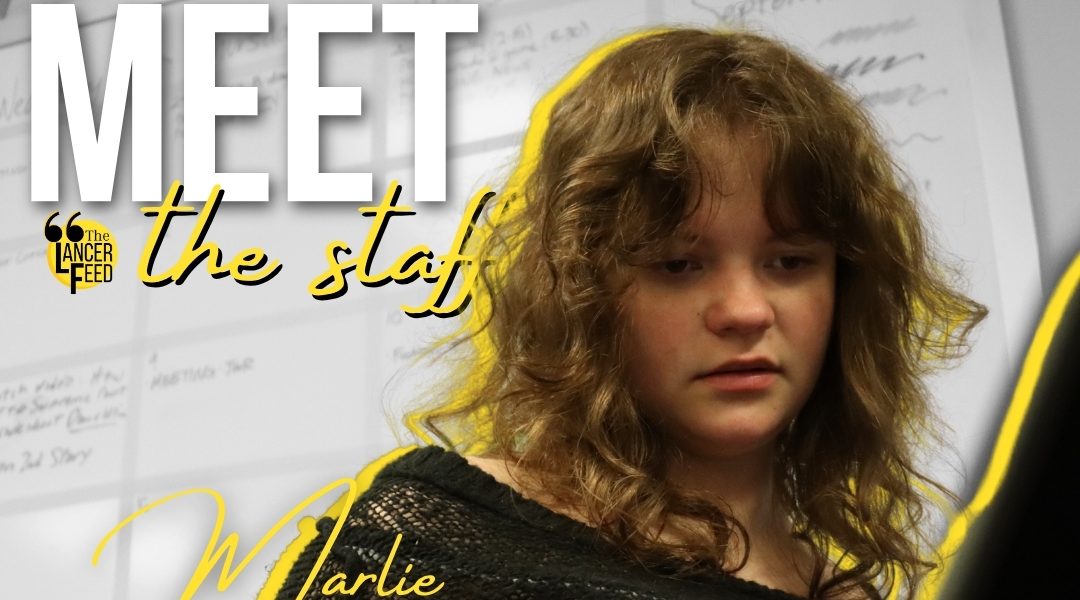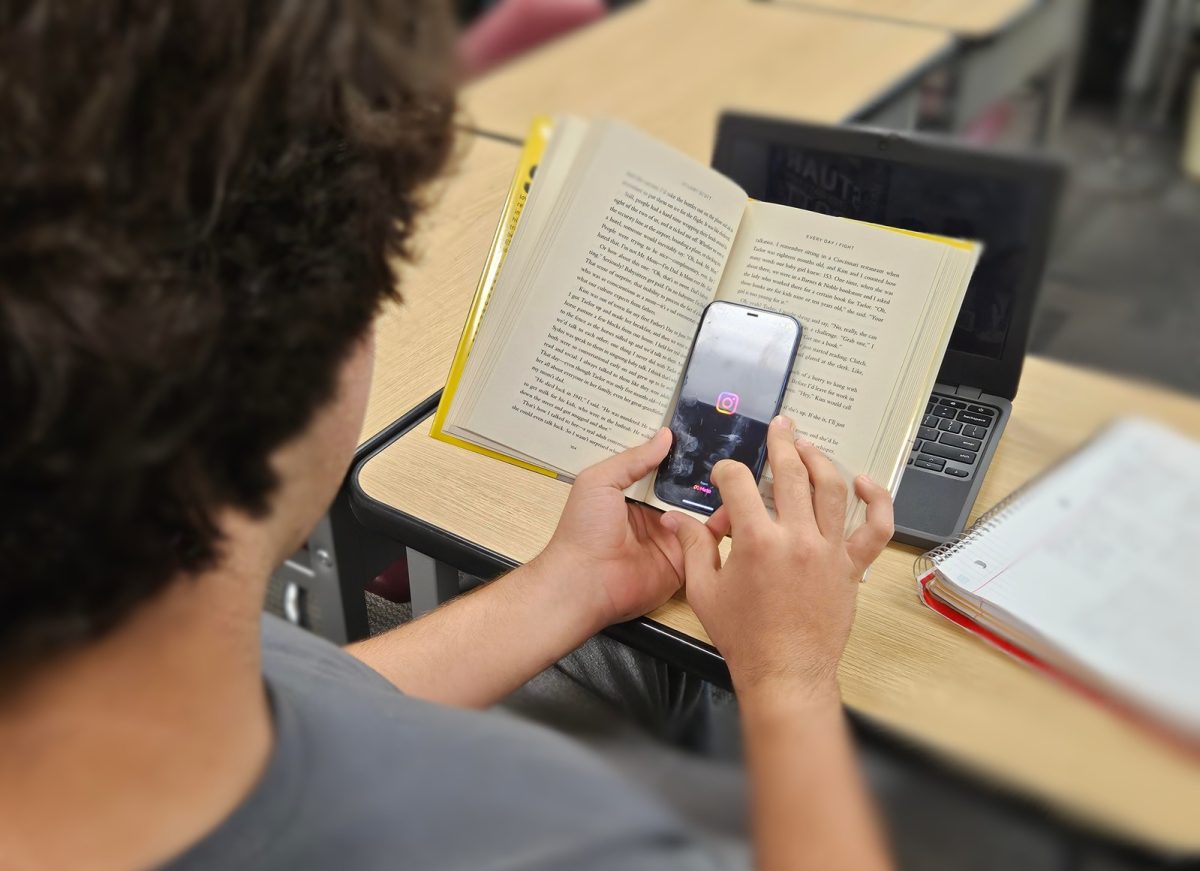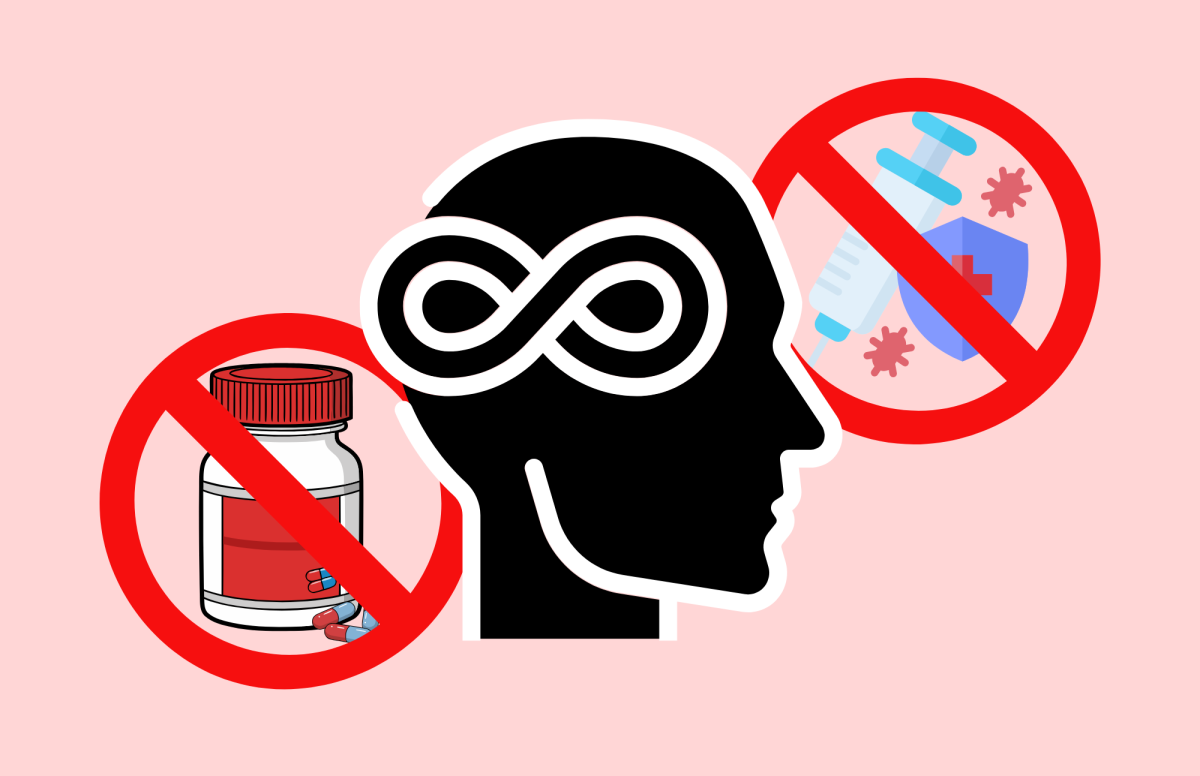Courses may opt for alternate forms of assessment rather than traditional final exam
In December of 2021, junior Ella Stone decorates her cupcakes for a project in Culinary Arts 1. Hands-on classes similar to Baking and Pastry will do final assessments in the form of projects and assignments and vary from class to class.
January 11, 2022
While final exams typically cast an intimidating shadow on the average high school experience, the Rockwood School District is now in its second year of replacing a traditional final exam for every course with more flexible ways for teachers to determine whether or not students have mastered the course content.
Although cumulative exams similar to final exams can still be administered by teachers, Infinite Campus no longer allows teachers to submit a specific final assessment worth 20% of the student’s grade.
The choice of what type of assessment to give students in each individual course is not determined district-wide by those who teach those classes. This decision was made after a subcommittee of the Rockwood Learning Council examined the district’s exam policy and also investigated what other high schools and universities were doing to assess student learning.
They found that a traditional paper and pencil type of heavily weighted exam was becoming a thing of the past in most places and being replaced with more course-appropriate assessments like portfolios or projects. That group’s work resulted in a change to the original wording of Rockwood’s final exams policy to an updated phrasing of: “Semester grades should be reflective of student achievement through multiple methods of assessment on the essential course outcomes.”
Rockwood Director of Research Evaluation and Assessment, Glenn Hancock, said, “Some courses, for example, a math course, may have a comprehensive exam putting the parts you’ve learned throughout your course together. Whereas another course, for example, Family and Consumer Sciences (FACS), might not need that same type of comprehensive exam. They may be asked to cook a meal, plan and cook a meal or do something more hands-on which is more than just a traditional seated, written exam that has been given in the past. They may find that more beneficial because they’re able to access students and get feedback on what they’re able to produce now through that final exercise, project or event.”
Many factors were taken into consideration when making the decision to eliminate traditional final exams for every course.
“With groups of teachers, we started looking at the 20%, which is a large chunk of a grade for one exam and how we can collect evidence throughout the year to know where students are at and get feedback. We also discussed that students were taking six to seven final exams in those three days, which is a heavy burden sometimes and if that’s really helping students learn more when we’re trying to cram six to seven exams in three days,” Hancock said.
This means that different courses will assess student mastery in different ways. For example, social studies teacher Amy Merriott teaches AP Human Geography, AP World History and Honors United States History, all of which will use different forms of a final assessment.
“In AP World, since we’re prepping [students] for a big exam, we think it’s worthwhile for them to take a final, that final though will only be multiple choice because we’ve given them so much writing [recently] and it will only go in as another test. In US History, it could be a multiple-choice final, it might also be a project or something that’s more hands-on. In that class, their end-of-course test or project can replace their lowest test score. In AP Human Geography, they just took a big culture test and did a bunch of writing so I think I’m just going to show a movie. I know it sounds like nothing but the movie that I’m showing is so connected to so many themes [in the curriculum]. I do a lot with that movie to make them pull out a bunch of themes so it’s not a blow-off situation,” Merriott said.
While final tests of the semester are not weighted the same as final exams were in the past, students consider cumulative tests to be very similar to finals as it requires the same amount of studying and still impacts the semester grade.
“To some extent it makes sense, but also, I see that they change the way it’s graded but it doesn’t really take away much of the stress,” sophomore Sarah Ebenezer said. ” Especially with the semester being weird and having all finals, or final week, after winter break, you forget everything so you have to do more work than you initially had to do to remember everything.”
With a similar sentiment, sophomore Katherine Limburg is currently taking AP World History and feels more pressure with the cumulative test because of it.
“Especially having an AP class, where it feels like its a lot more stressful, it feels like more pressure on you,” Limburg said.
In the FACS Department though, the assessments look a little different.
FACS teacher Leah Obenhaus said, “As a department, we feel final assessments are important in multi-level courses. That way, teachers know that students are prepared to move onto more advanced levels and have retained the information that will be built upon. The majority of our classes in the FACS department either have a final project, final exam or both. As students take higher levels of classes, they may even have both a final project and a final exam, depending on the course.”
For example, Child Development I and Food Fundamentals and slated to take a traditional final exam, while Child Development II ‘students have to write a formal lesson plan and teach in [Lafayette’s] onsite preschool’ and Family Relations is completing a ‘three-part final project about their family and history,’ according to FACS teacher Lauren Arnet.
For classes in the Business Department, with the exception of Personal Finance, most final assessments are based on projects.
“It is up to the instructor on the best way to assess the major outcomes of the course. Most of the classes will end with a final project that will test students on the skills learned throughout the course,” Business Department Chair Scott Beaver said.
Though tests may be stressful, senior Merrick Zheng said he feels teachers are doing their best to benefit their students.
“I feel like some teachers are accommodating to that, I know [math teacher Kelly] Loeffler is replacing your lowest test grade with your final grade, so I feel like teachers are adjusting to that policy even though I think they understand students are cramming for these exams and are trying to help us out a bit. Honestly, as a student, you wouldn’t be happy, but it’s understandable why they give us exams,” Zheng said.
Still, concerns about how final semester tests will impact semester grades are as prevalent as they were previously.
“I’m nervous about a lot of the finals because I have good grades in all of my classes, but if I don’t do well on the finals, that’s my final grade and it [still] might be brought down,” sophomore Lauren Baca said.
Rockwood would like to highlight consistency in exams across the district, so all students in certain courses will be taking a very similarly constructed final exam in all four high schools
“The contents of the exam may differ, the teacher may use different problems, kind of like the ACT does. We want it to make sense that whatever students are learning, they have a very similar way of displaying and showing evidence of what they learned,” Hancock said. “We have a curriculum revision process which happens every five to six years for each course and as we go through that process [final exams] will be a part of that conversation.”

